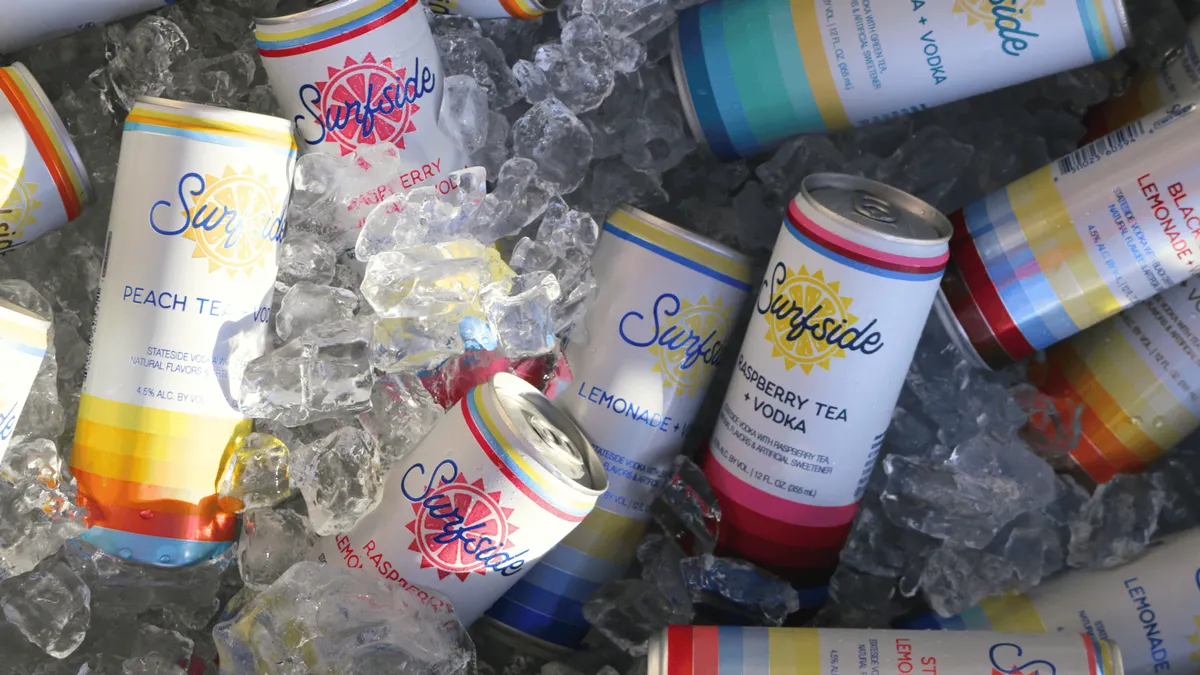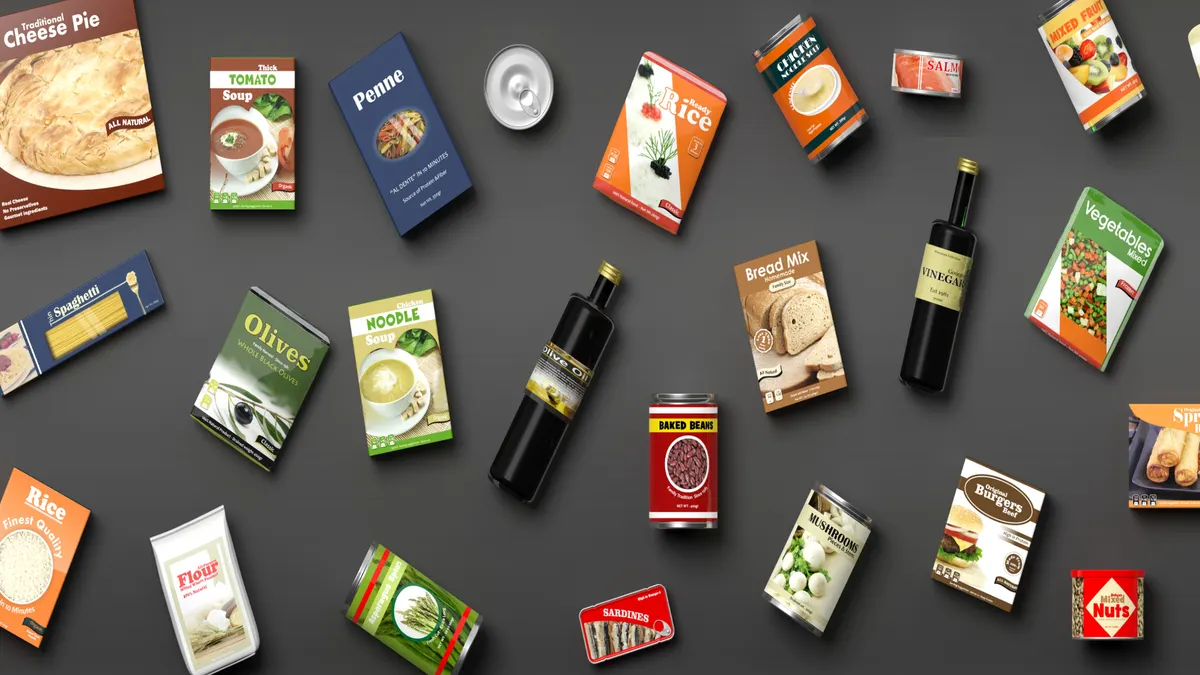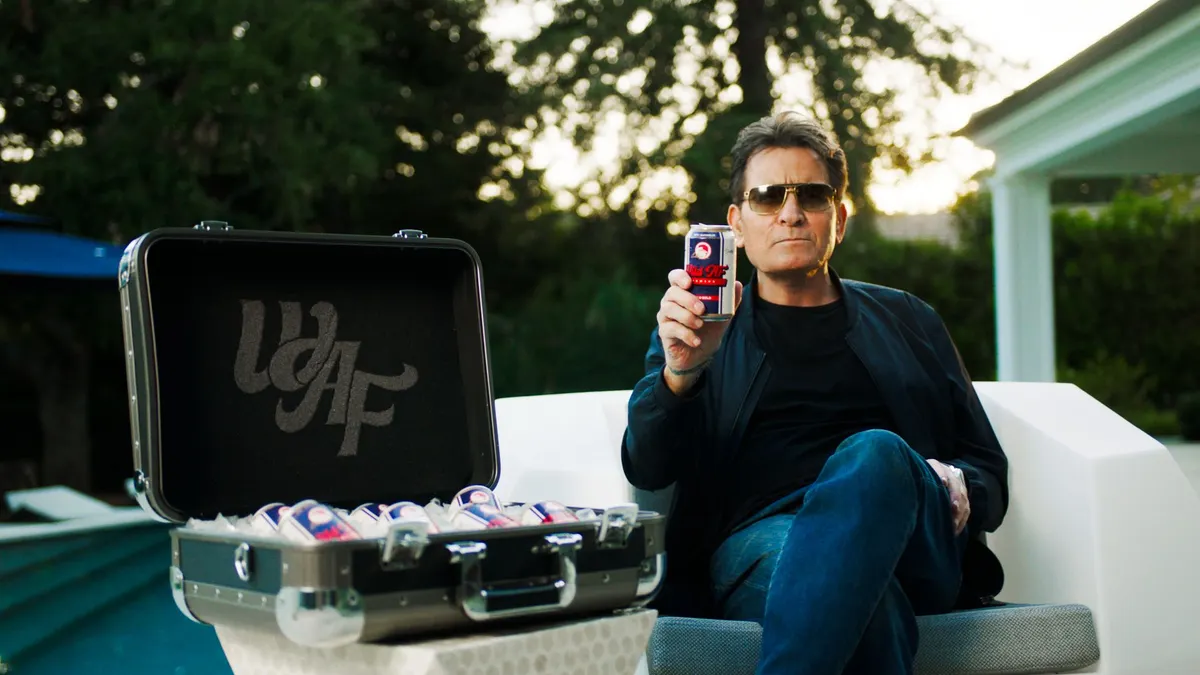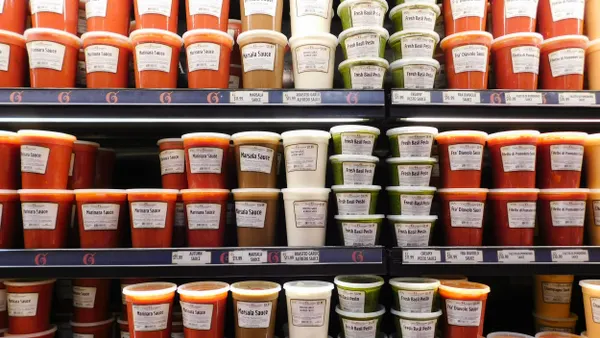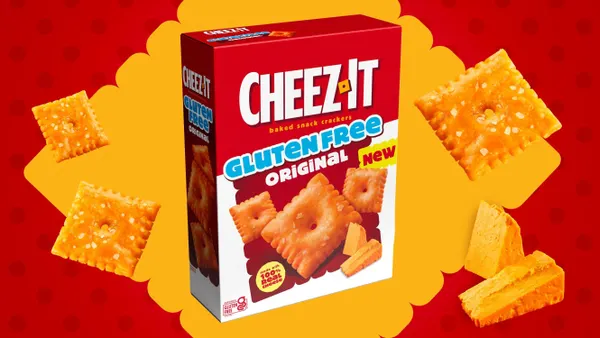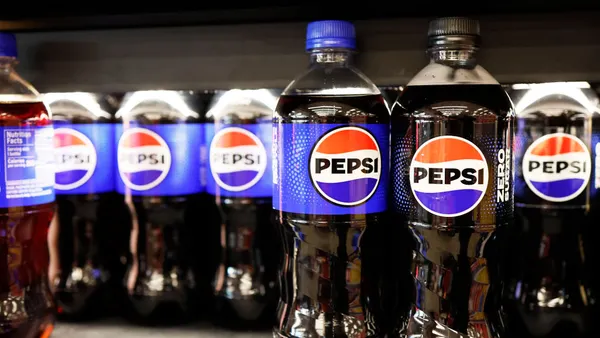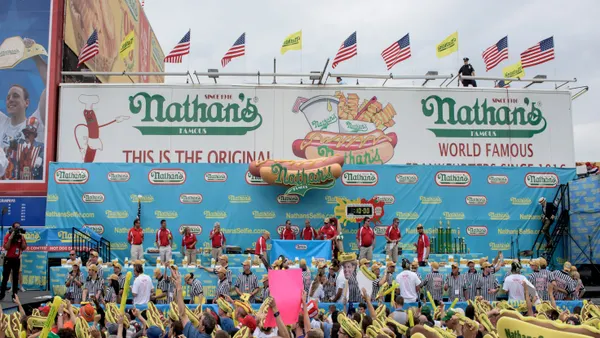Dive Brief:
- Surfside parent company Stateside Brands is suing Anheuser-Busch for allegedly copying the popular vodka tea’s can design for its competing Skimmers line of ready-to-drink cocktails.
- The lawsuit points to similarities in both products’ can designs, primarily color bands on the bottom of the can as well as a white background and sun logo at the top. Surfside claims Anheuser-Busch is attempting to get a “freeride” on the popularity of its canned iced tea and lemonade vodka drinks by putting out a similar-looking product.
- Surfside is asking a court to force the alcohol giant to pay damages and stop using the design. An Anheuser-Busch spokesperson said in an email to Food Dive that the “lawsuit is without merit and [we] will vigorously defend against it.”
Dive Insight:
The lawsuit marks the latest in a series of food and beverage companies taking to the courtroom over alleged dupes and unfair competition. J.M. Smucker sued Trader Joe’s for a “copycat” Uncrustables, while Mondelēz alleged Aldi's private label portfolio rips off Oreo and other snacks.
While overall alcohol consumption is down, vodka teas and other spirit-based RTD cocktails have remained a bright spot. Stateside entered the RTD category in 2021 and launched Surfside the following year, according to the complaint. Anheuser-Busch, meanwhile, entered RTD cocktails in 2019 before launching Skimmers earlier this year.
Surfside grew 563% during its second year on the market, according to data referenced in the complaint. Parent company Stateside earned “many millions of dollars” from the sale of Surfside products alone.
Attorneys for Surfside are seeking a jury trial in the complaint, which was filed Tuesday in the U.S. District Court for the Eastern District of Pennsylvania. Surfside accuses Anheuser-Busch of trade dress infringement and unfair competition. It’s seeking monetary damages as well as attorneys’ fees and a portion of Anheuser-Busch’s profits.
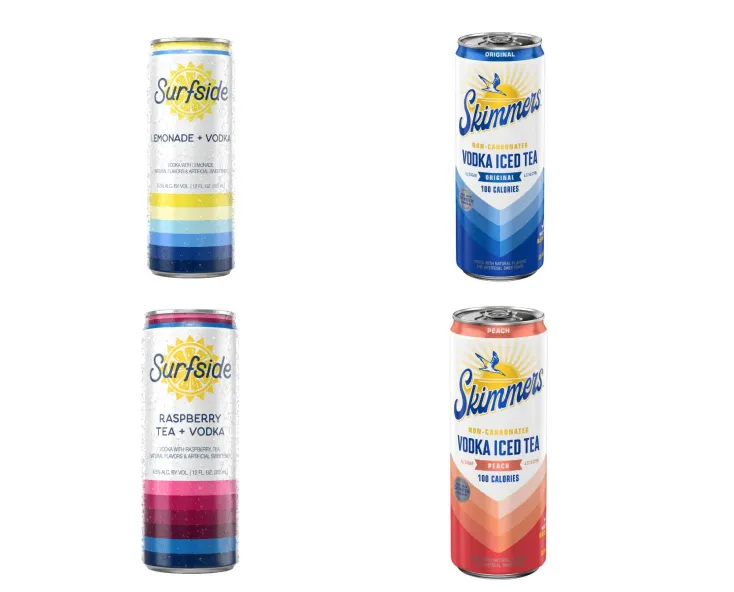
However, Stateside may face an uphill battle in the legal process because it doesn’t own federal trademark registration for its can design, said Josh Gerben, founder of law firm Gerben IP.
“Because the company is smaller and has experienced a very fast rise since 2022, protecting the design of the cans may have been overlooked,” Gerben said in an email. “The main challenge is that its evidentiary burden at trial would be higher to prove it has federal rights in the underlying design elements. This could make winning the case more difficult.”
Attorneys for Surfside didn’t respond to a request for additional comment.


